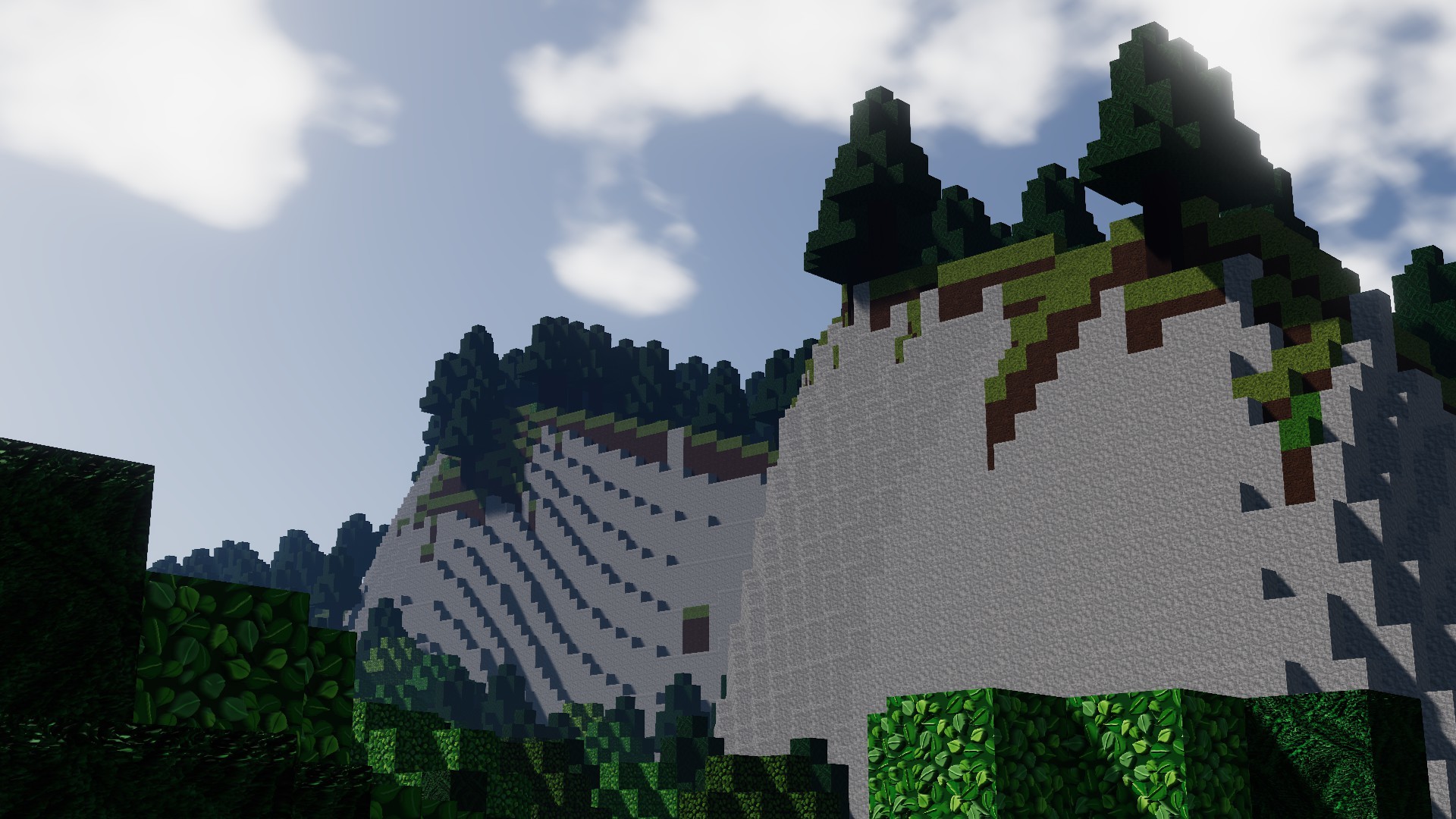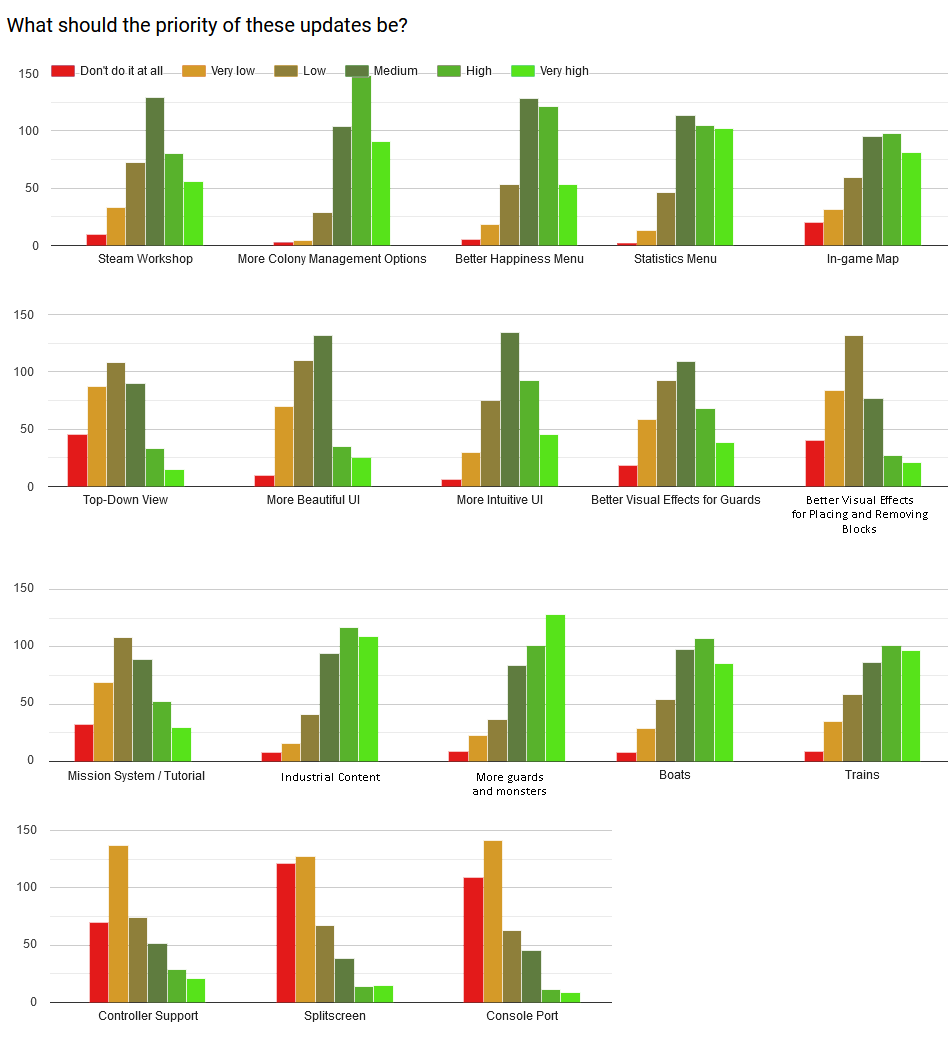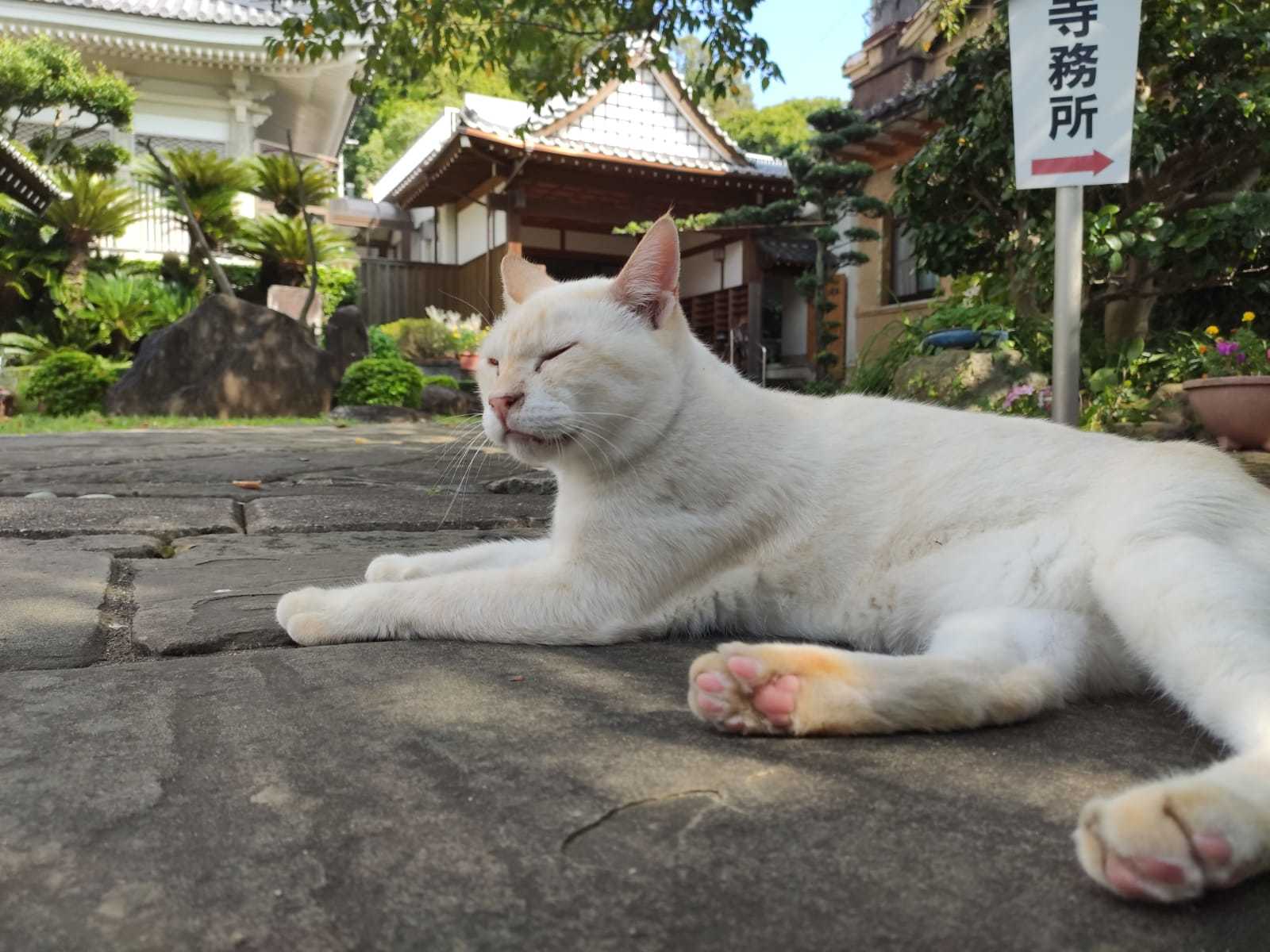
We've got a new survey! We'd love to see your answers.
Here's the link.Zun is currently entering the last week of his holiday in Japan. He is scheduled to arrive back in the Netherlands next Friday!
This is the first month-long break in development since releasing the game more than two years ago. While practical development is paused, we're still thinking about the game a lot. I do it pretty much all the time, and Zun mainly while visiting castles and when he's reading all of my rants / discussions with Vobbert when he returns to the hotel.
The combination of the break, and having access to like a dozen new games on both my PS4 and PC, has really changed my way of thinking about Colony Survival. We've been working on and playing the game for
more than five years now. We know how all the systems work and have deep experience with them. It has become very, very hard to imagine what a new player goes through.
But being a new player in a different game, with an eye for gamedesign, is extremely useful. Instead of trying to extend the endgame by adding new content and features, I'm now highly motivated to redesign the early game to be clearer, more fun and more intuitive.
 All photos in this blog made by Zun in Japan
All photos in this blog made by Zun in JapanSome improvements are obvious, but some parts of UI design / QoL improvements can be very counterinuitive. For example, both Classic Runescape and Classic World of Warcraft are making a resurgence. Why, when there's a more polished, more modern alternative of the same game available?
One reason is the
lack of Quality-of-Life features. When trading is hard, you need to assemble at an in-game location and compete with others who are "physically" present.
Adding a digital Auction House where it's easy to offer and purchase goods is technically an improvement. It makes gameplay smoother. But the point of games is not to offer smooth rides - players often want interesting challenges. And to many, the old way of trading was exactly that.
Another example is raiding and guilds, mainly in WoW. In early WoW, raiding was hard. You needed to find a group of like-minded players, determine which dungeon to attack, determine a date and time, and make sure everyone starts travelling there early enough. This was relatively hard to accomplish, and it encouraged people to join guilds and communicate outside of the game.
Throughout the years, the developers have tried to make raiding easier, allowing people to team up with strangers from other servers automatically and making travel less restrictive. While I 100% understand why the devs have tried to do this, it has partly removed the challenge that players loved, and made guilds way less important. This makes people less likely to make friends and thus less likely to stick with the game in the long term.
The same idea holds true in singleplayer games. In the past week, I've played a couple of hours of both Metal Gear Solid V and the new Ghost Recon Breakpoint. On the surface, they're pretty similar. Open world stealth games with vehicles and gadgets.
But one big difference is that MGSV has no mini-map and no automatic objective markers, while Breakpoint has both. At first I missed the mini-map in MGSV, but then I realized how it impacted gameplay. In MGSV, I actually take my time scouting, using my binoculars to mark all enemies. I look at the physical, in-game terrain to find enemies.
In Breakpoint, I look at the mini-map, and when I see a red blur on the map, I align my character to watch straight at the blur and
then try to spot the enemy. No surprises, no extensive scouting, just running/driving forward and pausing a moment when I see a red blur. It obviously makes the whole stealth gameplay less immersive and exciting.
The game itself sort of realizes this. When I got tasked to visit a distant harbor, the game explained that I could toggle off objective markers and try to find the harbor myself based on some descriptions. On one hand, I loved the idea. On the other hand - I didn't do it!
So why didn't I turn off the mini-map and the objective markers if I like that so much?
Metal Gear Solid V was meant to be played without them. To compensate for this, they added features like interrogating enemies, an advanced binoculars with many zoom levels, and enemies that stand out from the terrain. It was designed, tested and reviewed like this.
But Breakpoint isn't like that. Enemies are often hidden in foggy and hazy swamps, and you don't start out with great binoculars. Disabling these features might be interesting when playing the game for a second time, but during my first round I'd like to play the game as intended.
We're not trying to trash WoW, Runescape and Breakpoint here! We're just trying to distill some principles of game design. I'd say these are two counterintuitive rules:
- Quality-of-Life improvements can make your game less fun to play
- Simply allowing players to turn these features off is not a perfect solution

The examples above are highly related to
last week's blog. Games should be challenging, but creating the right challenge is very hard. Every individual is different, with different amounts of game experience, different preferences and different time constraints. What's challenging for one person might be too boring for someone else. Zun and I feel like we're stuck in the middle.
We've played lots of games in the past twenty years, so many popular AAA titles aren't that interesting for us. "We've done it all before", and a generic third person action game with some looting and crafting doesn't show us anything we haven't seen before. Many of these games are aimed at more casual audiences, with a tutorial streteched over hours of intro. We've got a hard time getting through that.
Luckily, there are indie games with ambitious goals. While they may contain more depth and more unique gameplay mechanics, they quite often suffer from bugs / performance issues / bad UI design / lack of a decent tutorial, making it very hard to get into them. That's one of the reasons that pushed us in the direction of game development - we had a hard time finding the games we wanted to play.
Now, we don't want to imply that all games are bad or that Colony Survival is perfect. Metal Gear Solid, Rainbow Six Siege, Factorio, Kerbal Space Program and 7 Billon Humans are all great games. But I believe there's plenty of room for more games with unique gameplay mechanics, great depth ánd an intuitive UI / tutorial / intro that makes getting into the game smooth!
Which games do you love and recommend? Let us know in the comments or on Discord, and
don't forget to participate in the survey!Bedankt voor het lezen :)
Reddit //
Twitter //
YouTube //
Website //
Discord



 The centre of Groningen occupied by farmers
The centre of Groningen occupied by farmers





 All photos in this blog made by Zun in Japan
All photos in this blog made by Zun in Japan
 All pics in this blog made by Zun in Japan, who is halfway his holiday
All pics in this blog made by Zun in Japan, who is halfway his holiday
